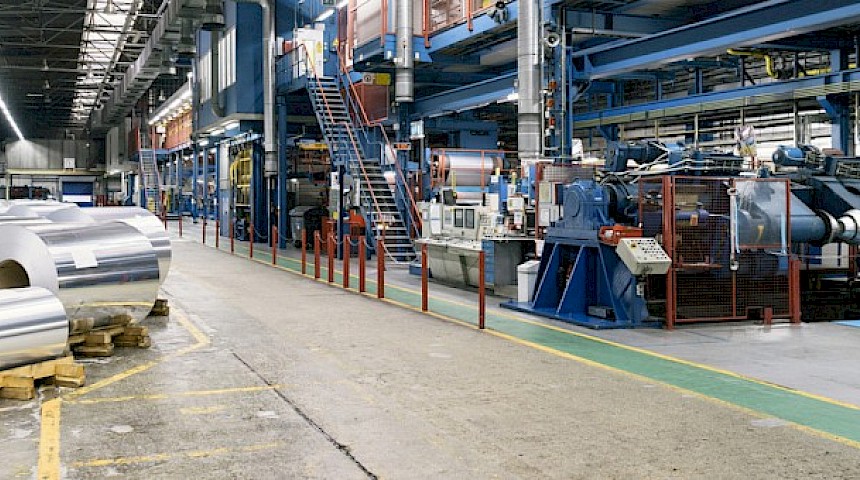29 March 2017
| Schweizer Eidgenossenschaft: Green Economy DialogueChallenging the credo of growth

University of Zurich Professor Marc Chesney firmly believes that our “seriously sick” society cannot recover without a radical rethink on our part.
When faced with crises, be they of a financial, economic, social or ecological nature, governments, central banks and international financial institutions generally only have one remedy to offer: growth, the deus ex machina that is supposed to free us from all ills. And this message is repeated ad nauseam by its supporters – it is what they learned, be it in their university lecture theatres or in their further training courses. Fight unemployment: growth! Reduce debt: growth! Get re-elected: promise growth! This dogma prevails unopposed, and any criticism of it is deemed misplaced.
But let’s dare to do it anyway and start with a general diagnosis: society is seriously sick, it has cancer. If patients suffering from this disease are measured by their oncologist to check whether they have grown taller, once they have overcome their initial astonishment, they are bound to ask whether the person treating them really is a doctor!
Debt is exploding
When the body or society gets cancer, growth means the proliferation of the cancer cells. What’s needed is treatment that will prevent this ill, and this, in turn, requires an analysis of the situation. The current economy is based on a debt-growth dualism. The first component, debt, would be useful to promote the second, and growth would be necessary to enable the repayment of some of the debts.
But the fact is that growth in the West, particularly in Europe, is very weak, and total debt is exploding. Globally, it accounts for approximately 250 percent of the world gross domestic product (GDP) and is growing faster than GDP. Growth requires not only an unsustainable rise in debt, it is also reliant on a second factor: the planned obsolescence of goods, which are designed only to last for a certain time to stimulate consumption.
These two factors, which both stand at variance with sustainable and dignified, humane development, are the lifelines of growth.
Growth, debt, pollution
In the nineteenth century, unprecedented growth was accompanied by real progress in the areas of healthcare, education, science and production. Today, however, social development and economic growth are often decoupled. Economic growth is accompanied by increasing pollution, new debt and the spread of casino finance. Nonetheless, the absence of growth is not desirable either.
When people try to do the work of bees
Two countries illustrate this paradox particularly clearly: China, which still has robust growth, and Greece, which often has negative growth. The social and economic situation in Greece is disastrous. China, which initially played catch-up with the West, is now facing the same – if not worse – problems as the West. Damages caused by the industrialisation of agriculture are obvious. In particular, bee death has prompted an attempt at pollination by humans, an experiment that risks being spread throughout the world.
Some might claim that if humans take over the work of bees, unemployment would be reduced and growth would rise. In reality, the attempt to replace an insect population by doing the work it does free of charge and which ensures our survival is not only unrealistic but also evidence of the decoupling of the economy from the environment and society and the absurdity of its current functioning. Economic growth that is based on the destruction of nature can only lead to an ecological and social disaster.
What is the solution?
Renewable energy and clean technology are important, but they are not sufficient on their own. A radical change in our way of life is needed. Instead of consumers, who are infantilised by aggressive marketing and endlessly consume trashy goods and soul-destroying entertainment, our society needs active citizens who are capable of finding responses to the current challenges we face.
The limits of growth, particularly in relation to the environment, must be identified and acknowledged. The question of growth is multidimensional. It involves economics and ecology, biology, history and philosophy. No organism or society can grow indefinitely. This wouldn’t be desirable anyway. Successive phases of growth, stabilisation and degeneration are the norm. The latter phase requires a paradigm change that should provide a target for our action.
Targeting qualitative values
The “always more”, which is an expression of the bulimia feeding the current cancer, should be replaced by the “sufficient”, the “necessary”, what we need to lead a decent, dignified and reasonable life. The ultimate goal should be the unfolding of human potential, in other words a qualitative value, and not a reductionist quantitative criterion like economic growth.
This text was first published in Le Temps and Tagesanzeiger/Der Bund.
